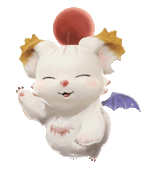Auswechseln wär keine schlechte Idee - auch ES krankt am "Haha, wir zwingen euch im Laufe des Spiels durch lustiges Partysplitten dazu, auch mit den absoluten Dreckscharakteren zu spielen!!!11111"-Syndrom.
Um da nicht noch frustrierter zu sein, ich sag nur... , empfiehlt sich Wechseln.

 Kontrollzentrum
Kontrollzentrum








